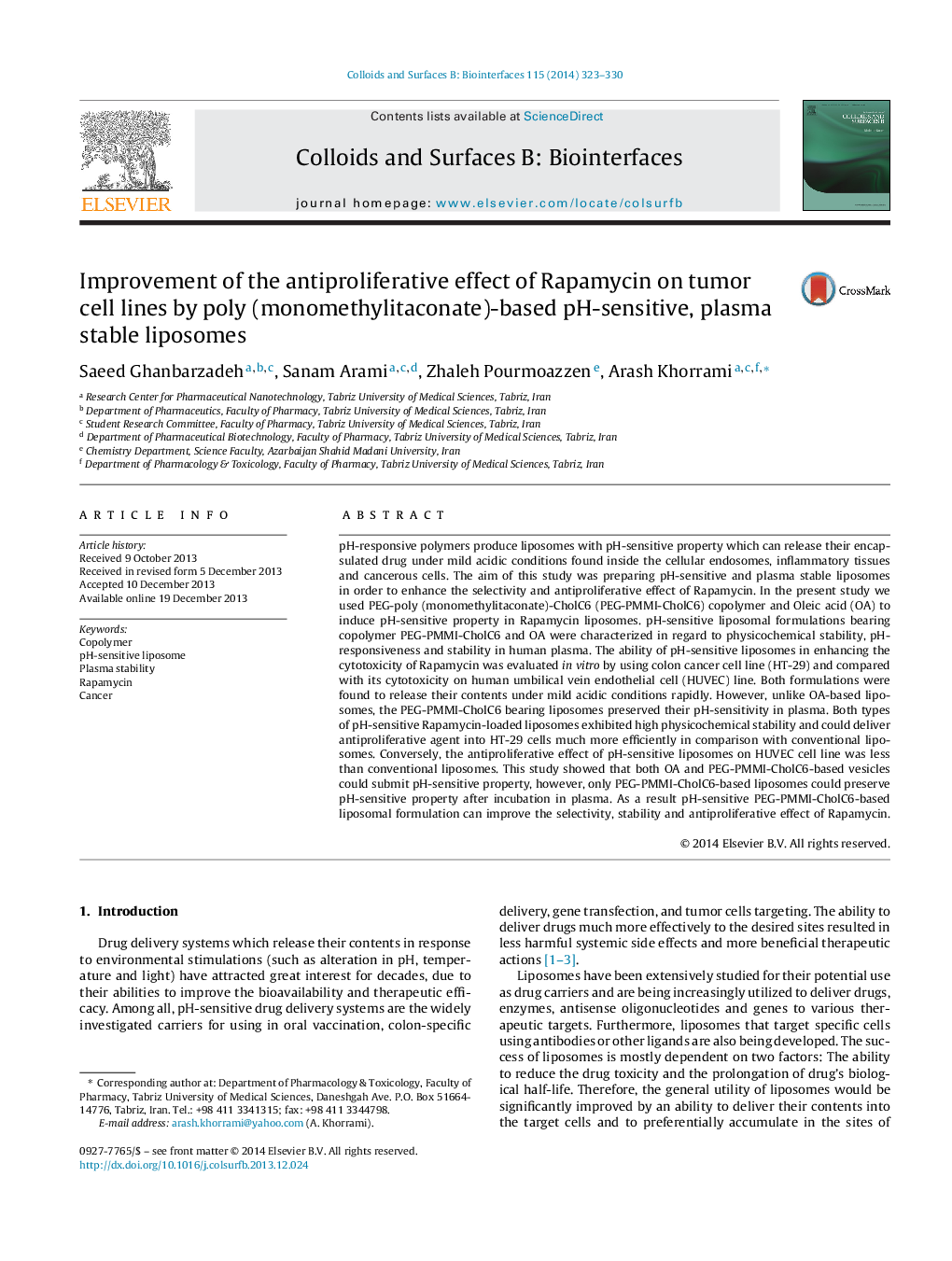| کد مقاله | کد نشریه | سال انتشار | مقاله انگلیسی | نسخه تمام متن |
|---|---|---|---|---|
| 599746 | 1454289 | 2014 | 8 صفحه PDF | دانلود رایگان |
• PEG-poly (monomethylitaconate)-CholC6 produces plasma stable, pH sensitive liposomes.
• pH-sensitive liposomes enhance efficacy and selectivity of Rapamycin.
• pH-sensitive plasma stable liposomes are beneficial in cancer chemotherapy.
pH-responsive polymers produce liposomes with pH-sensitive property which can release their encapsulated drug under mild acidic conditions found inside the cellular endosomes, inflammatory tissues and cancerous cells. The aim of this study was preparing pH-sensitive and plasma stable liposomes in order to enhance the selectivity and antiproliferative effect of Rapamycin. In the present study we used PEG-poly (monomethylitaconate)-CholC6 (PEG-PMMI-CholC6) copolymer and Oleic acid (OA) to induce pH-sensitive property in Rapamycin liposomes. pH-sensitive liposomal formulations bearing copolymer PEG-PMMI-CholC6 and OA were characterized in regard to physicochemical stability, pH-responsiveness and stability in human plasma. The ability of pH-sensitive liposomes in enhancing the cytotoxicity of Rapamycin was evaluated in vitro by using colon cancer cell line (HT-29) and compared with its cytotoxicity on human umbilical vein endothelial cell (HUVEC) line. Both formulations were found to release their contents under mild acidic conditions rapidly. However, unlike OA-based liposomes, the PEG-PMMI-CholC6 bearing liposomes preserved their pH-sensitivity in plasma. Both types of pH-sensitive Rapamycin-loaded liposomes exhibited high physicochemical stability and could deliver antiproliferative agent into HT-29 cells much more efficiently in comparison with conventional liposomes. Conversely, the antiproliferative effect of pH-sensitive liposomes on HUVEC cell line was less than conventional liposomes. This study showed that both OA and PEG-PMMI-CholC6-based vesicles could submit pH-sensitive property, however, only PEG-PMMI-CholC6-based liposomes could preserve pH-sensitive property after incubation in plasma. As a result pH-sensitive PEG-PMMI-CholC6-based liposomal formulation can improve the selectivity, stability and antiproliferative effect of Rapamycin.
Figure optionsDownload as PowerPoint slide
Journal: Colloids and Surfaces B: Biointerfaces - Volume 115, 1 March 2014, Pages 323–330
